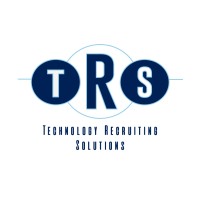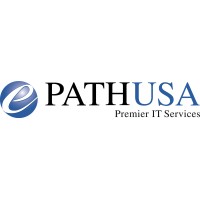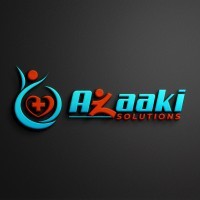

Technology Recruiting Solutions
Microsoft Access/SQL DBA Contract
⭐ - Featured Role | Apply direct with Data Freelance Hub
This role is a long-term Microsoft Access/SQL DBA contract based in Austin, TX (hybrid). Requires 10+ years in database design, migration to cloud SQL, and ETL tools. Must work onsite 3 days/week and be local to Austin.
🌎 - Country
United States
💱 - Currency
$ USD
-
💰 - Day rate
Unknown
-
🗓️ - Date
October 7, 2025
🕒 - Duration
Unknown
-
🏝️ - Location
Hybrid
-
📄 - Contract
W2 Contractor
-
🔒 - Security
Unknown
-
📍 - Location detailed
Austin, Texas Metropolitan Area
-
🧠 - Skills detailed
#AWS DMS (AWS Database Migration Service) #AWS (Amazon Web Services) #AWS RDS (Amazon Relational Database Service) #Database Administration #DMS (Data Migration Service) #Monitoring #Visualization #SQL (Structured Query Language) #VBA (Visual Basic for Applications) #DBA (Database Administrator) #Jira #Documentation #BI (Business Intelligence) #Database Performance #Data Integration #MS SQL (Microsoft SQL Server) #Database Design #Cloud #Tableau #PostgreSQL #RDBMS (Relational Database Management System) #RDS (Amazon Relational Database Service) #SSMS (SQL Server Management Studio) #Data Integrity #"ETL (Extract #Transform #Load)" #Normalization #GitHub #Automation #Disaster Recovery #Databases #TOAD (Tool for Oracle Application Developers) #Batch #Azure SQL #Azure #ADF (Azure Data Factory) #Migration #Azure Data Factory #SSIS (SQL Server Integration Services) #Agile #Microsoft Access #Microsoft Power BI
Role description
Microsoft Access/SQL DBA – Austin, TX (Hybrid)
Contract: Long-Term
Eligibility: Must be local to the Austin area and able to work onsite 3 days per week (hybrid schedule). Must be able to work on a W2 basis (no C2C, 1099, or third-party vendors). Must be eligible to work in the U.S. without sponsorship or visa transfer.
Overview:
We are seeking a Senior Database Developer (Microsoft Access/SQL DBA) with 10+ years of experience to lead the migration of legacy Microsoft Access databases into modern, cloud-native SQL platforms. This role will analyze existing data structures, design and execute schema transformations, implement ETL pipelines, perform validation checks, and guide program users through a seamless data transition.
Minimum Requirements to Be Considered:
• 10+ years designing, developing, and maintaining MS Access databases, including normalized table structures, advanced queries, forms, and reports.
• 10+ years of relational database design: normalization, ER modeling, schema refactoring, translating Access data into SQL schemas.
• 10+ years leveraging VBA for automation and workflow customization in Access.
• 10+ years migrating legacy databases to cloud SQL services (Azure SQL, PostgreSQL, AWS RDS).
• 8+ years with ETL tools (SSIS, Azure Data Factory, AWS DMS, or equivalent).
• 8+ years creating migration runbooks, data dictionaries, technical documentation, and leading training/knowledge-transfer sessions.
• 8+ years with RDBMS admin tools (TOAD, SSMS, SQL Developer).
• 8+ years configuring data integration/batch processing solutions in Azure Data Factory and/or SSIS, including monitoring, query optimization, and performance tuning.
• 8+ years migrating data from legacy databases into new platforms.
Preferred Skills:
• 6+ years with CI/CD, GitHub, JIRA.
• 6+ years with data visualization tools (Power BI, Tableau).
• 6+ years of experience in Agile development environments.
• 3+ years of experience in healthcare or public health.
• 3+ years supporting State of Texas agencies with Agile methodologies.
Key Responsibilities:
• Lead migration of legacy Access databases to cloud-native SQL solutions.
• Perform logical and physical database design, schema refactoring, and performance tuning.
• Build ETL pipelines and workflows, ensuring high data integrity and quality.
• Create technical documentation, runbooks, and deliver end-user training.
• Collaborate with cross-functional teams to support integration, reporting, and application modernization.
• Ensure accessibility standards are met for database administration tools, reports, and user interfaces.
• Monitor database performance, recommend optimizations, and support disaster recovery procedures.
Microsoft Access/SQL DBA – Austin, TX (Hybrid)
Contract: Long-Term
Eligibility: Must be local to the Austin area and able to work onsite 3 days per week (hybrid schedule). Must be able to work on a W2 basis (no C2C, 1099, or third-party vendors). Must be eligible to work in the U.S. without sponsorship or visa transfer.
Overview:
We are seeking a Senior Database Developer (Microsoft Access/SQL DBA) with 10+ years of experience to lead the migration of legacy Microsoft Access databases into modern, cloud-native SQL platforms. This role will analyze existing data structures, design and execute schema transformations, implement ETL pipelines, perform validation checks, and guide program users through a seamless data transition.
Minimum Requirements to Be Considered:
• 10+ years designing, developing, and maintaining MS Access databases, including normalized table structures, advanced queries, forms, and reports.
• 10+ years of relational database design: normalization, ER modeling, schema refactoring, translating Access data into SQL schemas.
• 10+ years leveraging VBA for automation and workflow customization in Access.
• 10+ years migrating legacy databases to cloud SQL services (Azure SQL, PostgreSQL, AWS RDS).
• 8+ years with ETL tools (SSIS, Azure Data Factory, AWS DMS, or equivalent).
• 8+ years creating migration runbooks, data dictionaries, technical documentation, and leading training/knowledge-transfer sessions.
• 8+ years with RDBMS admin tools (TOAD, SSMS, SQL Developer).
• 8+ years configuring data integration/batch processing solutions in Azure Data Factory and/or SSIS, including monitoring, query optimization, and performance tuning.
• 8+ years migrating data from legacy databases into new platforms.
Preferred Skills:
• 6+ years with CI/CD, GitHub, JIRA.
• 6+ years with data visualization tools (Power BI, Tableau).
• 6+ years of experience in Agile development environments.
• 3+ years of experience in healthcare or public health.
• 3+ years supporting State of Texas agencies with Agile methodologies.
Key Responsibilities:
• Lead migration of legacy Access databases to cloud-native SQL solutions.
• Perform logical and physical database design, schema refactoring, and performance tuning.
• Build ETL pipelines and workflows, ensuring high data integrity and quality.
• Create technical documentation, runbooks, and deliver end-user training.
• Collaborate with cross-functional teams to support integration, reporting, and application modernization.
• Ensure accessibility standards are met for database administration tools, reports, and user interfaces.
• Monitor database performance, recommend optimizations, and support disaster recovery procedures.





